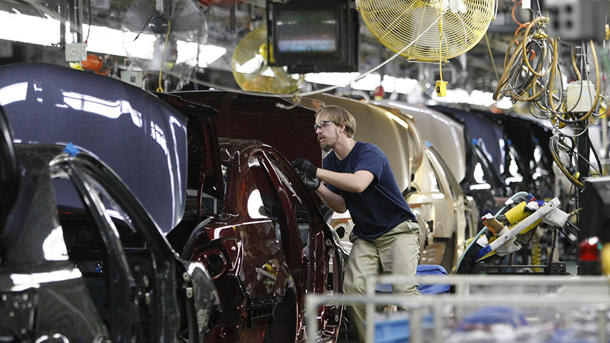UnitedHealth Group, the largest provider of Medicare Advantage plans, warned Thursday that funding cuts for the privately-run versions of the federal Medicare program will force it to reconsider its expectations for earnings growth next year.
CEO Stephen Hemsley told analysts that the government-subsidized coverage for elderly and disabled people faces a reimbursement cut of about 4 percent next year. That’s on top of other possible federal funding reductions and an expected 3 percent rise in medical costs.
“We did not expect the fastest-growing, most popular and most effective of the Medicare benefit options serving America’s seniors would be underfunded to this extent in 2014,” Hemsley said.
More than 13 million people were enrolled in Medicare Advantage plans last year, or about 27 percent of the Medicare population, according to the nonprofit Kaiser Family Foundation.
Insurers offer hundreds of different Medicare Advantage plans around the country. The coverage typically provides extras such as dental and vision care, or rates that are lower than standard Medicare.
UnitedHealth, which is the nation’s largest health insurer, has nearly 2.9 million people enrolled, and the plans brought in about 20 percent of the insurer’s revenue last year.
Shares of UnitedHealth and other insurers that provide Medicare Advantage coverage slid in February after the Centers for Medicare and Medicaid Services released data that pointed to payment cuts as steep as 8 percent next year. The government then softened the blow to a reduction of about 4 percent.
But UnitedHealth said that cut, combined with the other reductions, will be tough to stomach. UnitedHealth said it may have to trim benefits, change provider networks or leave some markets to preserve Medicare Advantage profitability.
Hemsley, UnitedHealth’s CEO, called the reimbursement cut “a significantly greater rate setback than anyone could have expected.”
The company also said widespread government spending cuts that started earlier this year and hit Medicare will make it hard for the insurer to reach the top end of its forecast for 2013 earnings of $5.25 to $5.50 per share. Analysts expect earnings of $5.51 per share, according to FactSet, a research firm.
Analysts had labeled UnitedHealth’s 2013 earnings forecast conservative after it came out last fall, and the insurer normally raises it several times through the year. But so far, the company has just backed the initial projection.
Thursday’s outlook warning came as UnitedHealth reported that its first-quarter earnings sank 14 percent, largely due to a lower gain the company recorded due to leftover insurance claims.
—
Click below for the full article.
http://finance.yahoo.com/news/unitedhealth-warns-medicare-profit-squeeze-175814694–finance.html

